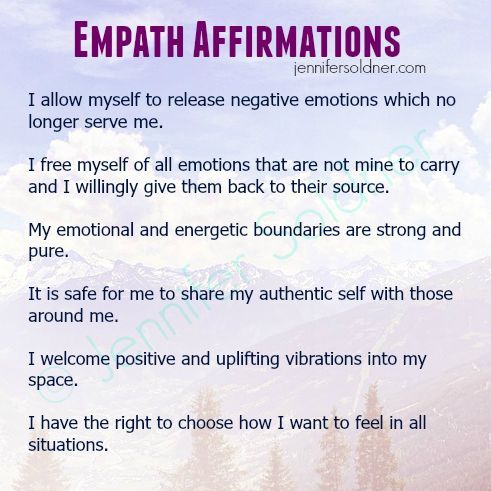Great news, guys. One spot just opened up for the Channeling Erik Weekend of F-ing Enlightenment this April as well as the hotel room reserved by the person who canceled. Unfortunately, she’s canceling due to illness so please send her healing energy. If you want to snap it up, click HERE.
Another announcement: I don’t plan on posting on Good Friday since my kids will all be home, but I’ll put my nose to the grindstone Monday. Happy Easter (to all of you who celebrate it!)
One more thing: A blog member brought to my attention that the link to the post where Jamie trance channels Grace was broken. I fixed it, and I encourage you guys who haven’t already to check it out!
Here’s Part Two to yesterday’s post:
Me: Is there anything we can learn from that sense of not belonging?
Erik: A lot! You learn that it’s all internal. It’s all in you, not caused by something outside of you. You have to be aware of that. Self-awareness is like this sweet little personal gift. Most people want to do the work that everybody else can see. Our whole culture is very externally focused. You know, “I’m going to take care of myself and lose 20 pounds so everybody can see that I’ve lost that weight.” But when you bring that work internally, that’s a gift. People will experience it with you, but they won’t see the internal work you’ve done.
Me: Anything else in my specific case of not feeling like I belong?
Erik: You were told and taught that you didn’t belong. Yes, you have more of a sense of belonging to the spiritual world than the earthly one, but your parents drove it home. They didn’t create a safe environment for you. They made it a dangerous one, but as you’ve grown older, you’ve learned to create your own safe environment. Look at your home. That’s why it’s so awesome, your family, your sense of closeness to them. You’ve created that environment because it’s so important to you. Home is extremely important. Some people kind of shove it under the rug, so you need to pay attention, people!
Me: Yeah, it’s so important.
Erik: Now the disconnect you’re working on is that you have to pick a world. You need to pick a world, Mom. Here or there?
Me: Well, for now I’ll be here.
Erik: Yeah, because once you’re done with there, guess what? You get to come here, so you get the best of both worlds.
Me (tearing up): Yes, and I’m going to give you a big hug. First thing I’ll do.
Jamie: When he gives me the image of a foot in both worlds—the thing I think about is one foot in the door. I get the image of a door. He showed me the image of those circus horses where the woman in the cute little outfit and feathers on her head has a foot on one horse’s back and one on the other’s. He put you up there in the costume. That was so funny.
Erik: Pick one horse, Mom.
Me: Well, it’ll have to be pants, not a skirt. Nobody’s seeing my cellulite. Hell, no! All right, good. As long as the horses don’t stray too far from each other.
Erik: No, they’re not going to. Remember, you get the best of both worlds, Mom.
Me: What about the solution? What can you tell people who feel like they don’t belong?
Erik: Just remember it’s just a story you tell yourself. If you’re here, guess what? You belong. It’s as simple as that, but our analytical minds chew that shit to pieces. So if you’re here, you’re meant to be here, and building on that—
(Pause)
Jamie: He’s going back to talking about having a team. He says that would work.
Me: Well, what works for me, and I’ll just give you an example, is just feeling compassion, you know, creating a connection to people, like smiling at a stranger. I’ve been practicing that. For example, sometimes when I cross the parking lot in the grocery store, I’ll smile at a stranger and feel a change in their demeanor. We feel connected. Another thing I do happens when I go to the drive-in at fast food restaurants. It’s kind of an experiment of mine. When I pick up the food, I say thank you and make eye contact when I do. I mean soul-to-soul eye contact. I always notice a change in them when I do. It feels so good, and I feel like we’re part of each other’s world for that one moment. We’re a part of the same world.
Erik: Yes. You’re telling yourself that it’s okay to reach out and create your own safe environment, but you have to define what that environment is. For you, Mom, you like that personal touch. You want that smile. You want that eye contact. That’s safe for you. It feels good. Some people won’t find that as a feel good moment. They might find that having a routine is a feel good moment, so giving themselves permission to create a routine works. Some people might create feel good moments by giving themselves permission to have free time, some by giving themselves permission to meet a new person or do something different. Ask yourself what your safe environment is, people. How does that ideal, healthy environment feed you? Choose an island. And the great thing is, if you don’t want to remain constant, always change.
Me: Yeah, you can create your own archipelago.
Erik: Well, you have to acknowledge that if you’re no longer comfortable with an island two months down the road, three years down the road, then maybe you’ve gotten everything you needed from it. Maybe it’s time to swim to another island. I think when we get into talking about therapists and labels, a lot of people get freaked out because they think that once they feel like they’ve been defined as something, then they can no longer be something different. There has to be this ebb and flow of growth. Isn’t that what this shit’s about?
Me: Yeah!
Erik: I don’t know why people torture themselves with, “Well, somebody says I’m this or that, so therefore I am, and I’ll be that for the rest of my life.” Give yourself the opportunity to change and grow.
Me: Yeah, take that kayak out for a spin. What about the other people? What about people who are empathetic, sensitive to noises, to external energy and also people who have trouble with their boundaries?
Erik: People who have trouble with boundaries need the support of their team, maybe the life coach or the friend that will teach them how to build that boundary. Maybe they can help you by role-playing the better boundary. As far as the person who has trouble with noises, maybe if they figure out that it’s the way that their brain is functioning or it’s how they perceive the sound will help. Maybe it’s a sound of a gunshot from another life. Past life regression might help in that case. Maybe it’s the gunfire from the Vietnam War they served in in their current life. All they need to do is accept that and change it to where it fits them better.
Me: So, is it about shifting your perspective?
Erik: Yeah.
Me: Maybe you can recreate the story.
Erik: Yes. Take public speaking or social phobia. That’s one of the boundaries I was talking about. Start out by talking to someone who feels safe then go to talking to a small group of people. Gear the conversation toward subjects you feel confident about. Keep nudging yourself out of your comfort zone until you realize, “Well, this isn’t so bad.”
Me: That happened to me. I used to have a lot of trouble speaking in public. I guess that came from being raised to think I was incapable, but after a lot of practice and realizing that I was not being drawn and quartered by the crowd, I felt more comfortable.
Erik: Yes. People in this case have to ask themselves if they’re uncomfortable with their abilities, and if they are, there’s always a way to fix it. There’s always a way to grow beyond it, and the team will help them become a better version of themselves, whatever that means to them. Remember, though, better is not good or bad.
Me: Yeah, like you can take lessons in public speaking. There are all sorts of resources.
Erik: Yes, and those resources will help you push the envelope, define and expand those boundaries that you had trouble with.
Me: Okay. What about those people who are overwhelmed by noise, light, everyone else’s energy, and so forth? What do they do?
Erik: If it’s an energetic sensitivity, and everything you just mentioned is, then you need to figure out how your body is processing it. Is it because you’re emotionally sensitive to it, or is it your brain going, “I don’t want to deal with this. It’s too much.”
Me: Or is it a past life issue.
Erik: Right. There are brain gyms that can help rewires nerve circuits in your brain. There are some that use the motion of your eyes, how they receive information and how that information is sent to the brain.
Me: Like EMDR?
Erik: Yes. That’s an example. It’s for emotional rewiring, but they have ones that focus on sensory rewiring, too. Google it.
Me: Interesting.
Erik: To sum it up, feeling that you belong requires letting go of your story and accepting where you are. If you don’t enjoy where you are, accept the idea of changing it.
Me: Well said.



